![]()
"Jesus had limited what He told the disciples because of their inability to understand"
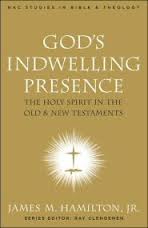
"In 14:26, Jesus says, "But the Paraclete, the Holy Spirit, whom the Father will send in my name, will teach you all things and will remind you of all that I myself spoke to you.” (14:26). The teaching ministry of the Paraclete is presented as superior to that of Jesus because the Paraclete will teach them "All things" and will remind them of "everything" that Jesus said (14:26). The Paraclete's ministry is set clearly in the future. Jesus again identifies this "Paraclete" with the Holy Spirit, whom the disciples would know from the Old Testament (Ps. 51:11; Is. 63:10,11): "But the Paraclete, the Holy Spirit—the Father will send in My name" (14:26). This sending will fulfill Old Testament promises as well as Jesus' request (14:16). The sending of the Paraclete in Jesus' name not only links the sending to Jesus' request but also supports the claim that the Paraclete comes to continue Jesus' ministry.
The Paraclete's ministry to the disciples both goes beyond and is limited by Jesus' ministry. On the one hand, the Paraclete would teach the disciples "all things" (14:26), and so the disciples would know more from the Paraclete's teaching than they knew from Jesus' teaching (see 1 John 2:27)... The Spirit's teaching went beyond what Jesus taught only in that it deepened their understanding of what He said.
Jesus' statements in John 14:25-26 are closely paralleled by those in 16:12-15... What may be implicit in John 14:25-26, that Jesus had limited what He told the disciples because of their inability to understand, is made explicit in 16:12. They had trouble understanding what He did tell them, and now the reason for that is made plain: their abilities are limited. Their limitation, however, is not the world's inability to "know" or "see" the Spirit (14:17), but is a function of their location on the salvation-historical time line (note 16:12," you cannot bear them now [arti]" and "Whenever [hotan] the Spirit of truth comes" in 16:13).
As in 14:25-26 the Paraclete will teach more than Jesus taught; in 16:12-13 ... will "guide them into all truth" and speak of "things that are to come," including things they are unable to "Bear.”...
The Spirit will also declare to the disciples "What is coming" (ta erchomena, 16:13). The Spirit's proclamation should be understood in light of the rest of the New Testament. As Holwerda writes,
The task of the Spirit to teach all things, to lead into all the truth, and to declare the things to come is essentially one: the Spirit reveals the meaning of the Heilsgeschichte, the meaning of the saving events, past, present, and future. The Spirit reveals to the disciples the meaning of the work of the historical Jesus, the exalted Jesus, and the Jesus who is to come. The proper commentary on this work of the Spirit is the New Testament itself. [117]
James M. Hamilton, Jr., God's Indwelling Presence: The Holy Spirit in the Old and New Testaments
B&H Academic (August 1, 2006), pp. 79-83
[117] Holwerda, The Holy Spirit and Eschatology in the Gospel of John, 62. Thus Holwerda takes the Spirit's declaration of "What is coming" to refer to: (1) the book of Revelation ; (2) the meaning of salvation history; (3) the meaning of the work of the historical Jesus; (4) the exalted Jesus; (5) the coming Jesus; and (6) the NT.
"Another Advocate to Be with You Always"
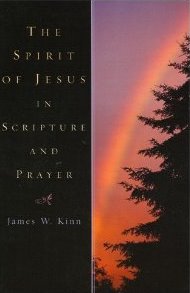
"Jesus promises here that this Advocate will be 'with you always ... will remain with you and will be in you.' (14:16-17) ... In this first saying about the Paraclete Jesus establishes only the foundation for the whole work of the Paraclete: that the Spirit will dwell with them and in them as their own personal guest; the Spirit will be in them permanently as the new presence of Jesus.
In this first saying, then, we know very little beyond this amazing promise: the Paraclete will be our own internal presence, the new presence of Jesus, and will act as 'the Spirit of truth.' But that in itself is most important for our prayer life: to know that the same internal presence of the Spirit of Jesus will be within us and within every believer; the Paraclete is our own personal possession; the very Spirit of Jesus is with us always. Though we never saw Jesus in the flesh, we now possess him and know him in his Spirit. We can relate to this Spirit just as we would relate to Jesus. In terms of our prayer, then, we should not only imagine Jesus as the risen Lord, far removed from us, but we can pray to this Spirit of Jesus as intimately and individually present within us. What a powerful gift this is for our prayer life! Our whole spirituality can be described simply as a personal, intimate relationship to Jesus as 'the Way, the Truth and the Life.; and this one assurance of Jesus tells us that this Spirit of Jesus is the real, personal, intimate link with Jesus himself.”
James W. Kinn, The Spirit of Jesus in Scripture and Prayer
Sheed & Ward (May 26 2004) p. 127-8
Saying 10: Jesus said," I have cast fire upon the world, and look, I'm guarding it until it blazes.”
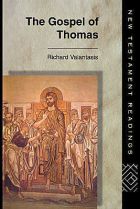
"This saying articulates a subversive aspect of the mission of these sayings. The collection does not entirely revolve about the positing of an alternative way of living and conceiving of self; it also describes the social displacement and social reorganization that follows those personal alternatives. The violence of that subversion becomes evident here when Jesus announces in this declarative statement, that he has 'cast fire' upon the world. The problematizing of the world which seems so much a part of these sayings carries with it an increment of destruction and violence. Although Jesus has cast this fire upon the earth, the fire remains weak and needy, requiring protection from its originator until it can take hold. That describes a subversive violence, one which begins very small and hidden, but which eventually erupts into full force destruction. Fire bears a double significance in this saying, a duality of meaning that underscores this twin role of violence and dependence: the fire that Jesus casts seems to relate to a judgmental use of fire, the metaphor of fire as an apocalyptic or eschatological tool, while the tending of the fire in the second half of the sayings suggests the kindling of a small force that will be protected until it develops. The positive and pastoral role of the guardian of the fire balances the negative role of the fire itself, because this fire is not an instantaneous destructive one, but one that needs tending and care until it matures.
The articulation of such violence should not surprise readers, because it seems to be a corollary to the kind of loosely formed community which these sayings posit. Since these people are the ones who have ears to hear (Saying 8) and senses to perceive (Saying 5), they do not form the majority, but an entitled minority. They are, in fact, the fire that needs to be guarded and tended until they may mature. This community chooses their minority status: the conflict with the dominant religious environment in which they live enhances their own identity. The clearer the distinction between their minority and the dominant religious expressions of their day, the more violent and subversive will their opposition to it remain. Jesus' saying makes that opposition essential to the self-understanding of the readers and seekers, while also acknowledging that the opposition does not put them immediately in a place of power but in a place of fragility, which demands Jesus' protection.”
Richard Valantasis, The Gospel of Thomas
Routledge; 1 edition (June 27, 1997) pp. 69-70
.jpg)
The Paraclete Shri Mataji "So today is a very, very important day, you know that because in the history of creation you know till the time of Christ, in the human awareness, only the sense of resurrection was created - that you can be resurrected or you can be reborn. That sense came down to them. I mean people recognized that it could happen to all of us sometime.
But it did not happen. Actualization never took place. That was a problem and without you entering into the reality whatever one may talk about becomes imaginative. So one has to jump into the reality into the [truth]. This never had happened before and as I have told you that if it had happened to one or two people it makes no difference at all to the masses and nobody accepts it. And like a small little river flowing in the desert it disappears in the thin air. The truth also, whatever was found out, never had any roots. And all kinds of funny things started, with this reality, which these people preached.
So it was to be culmination of human consciousness where he becomes one with the Divine that he becomes one with himself - was to happen. And that too was to happen at the time, which was most importunate - best time.”
The Paraclete Shri Mataji
Sahasrara Puja. Dollis Hill, London, U.K.—5 May 1979
.jpg)
The Paraclete Shri Mataji "Today is the great day when a great son of the Goddess was born, at least it is celebrated today. And you all are assembled here to celebrate the birthday of Christ. You already know how He came on this earth, and what was His great work. But we must see to the subtle side of Christ. What was His power? Christ's power was of course aumkara. His power was pranava.
But the essence of Christ was tapasya, tapasvita. He is the incarnation of tapasya. And in that incarnation is a sinless personality. He's sinless. Of course incarnations never commit sins. But apparently things that look like sins are also not in His life story. Like one can say that Shri Rama's gave up His wife, so it is a sinful thing. Of course those who understand the subtleties of Shri Rama's life will know that it's stupid to say such a thing. Or Shri Krishna's life, they might say He married so many women. But in Christ's life you do not find anything that could be pointed out as a mistake, even a slightest mistake. it's a very straightforward life, absolutely pure life and doing no commitments of ambiguous nature.
But it's very surprising that Christianity is just the opposite of what Christ wanted it to be. They painted Him so differently, brought Him out so differently and made a mess of His life. A terrible mess I must say, because He was the person who tried to keep to the maryadas of the dharma to the maximum. And while the Christians stretch their imagination to such an extent that their sinful life is shocking, the kind of sins they commit is extremely shocking. For example, He said in a very subtle way, "Thou shalt not have adulterous eyes.” Even in Sahaja Yoga I find people still have this problem. What a sinful thing to do to Christ. For Christians to have such eyes which are adulterous, and they are the people who have the maximum number of this. Not only that, but they generate it, they give it to others. Those who wept, go to them, pay them nothing. Those who meet them, they take it up as something really great and elite. it's such an infectious horrible stuff, and even after coming to Sahaja Yoga if you do not understand, I cannot say what one can achieve in life. Because he's the gate. You may cross over all the chakras, but if you are closed at that chakra you cannot get out.
The kind of sinful life people are leading in the western countries has to be absolutely condemned and has to be thrown out, and nobody should explain it. Nobody should say that it is something, it is just a sin, and all right, Mother will forgive, all this kind of nonsense. It is the greatest wrong you are doing to yourself and to Christ. The abandonment of your character, which is just the opposite of the golden character of Christ. He burnt Himself like chandan, sandalwood. Like gold He came out of that fire of hell to burn away all that is sinful.
So the first attention of anybody who wants to cross the Agnya has to be a sinless life, and that is what one has to realize that how, in the west, they have become all anti-Christ. On this day of His birth, one has to say that a great life, a great personality, was not only wasted, but perverted, misused. Just can't believe, how can you use the life of Christ for doing all kinds of nonsensical things?
We have one instance where Christ converted water into wine. I can do it also very easily. Wine is not the alcohol. Alcohol is the rotten wine. You have to rot it for days together and the more rotten it is, the more old it is, then it is regarded as something very expensive. The whole idea is so ridiculous, so repulsive, absolutely below the dignity of human level to bring down Christ into all this social life that you are leading there. For you it is important now, all the Sahaja Yogis from the west, to stand up and make your life pure. Make yourself pure, and hate all that is created in the name of Christianity.
Actually, thank God they have found out now the book written by Thomas who has described Gnostic way of life, where gnya means 'to know.' In Sanskrit language, gnya means 'to know,' gnya. So he has described very nicely the gnostic life. This was the Gnostic Bible, or whatever we call it, saying about a personal experience of achieving God realization, self realization. It talks about Sahaja Yoga out and out. Thomas on his way to India, went to Egypt and there he has put this in a big vessel of some metal. Thank God it was done in Egypt, otherwise in any other place they would have used it for some other purpose. And already it would have been perverted.
it's important, very important for all of us to understand that the first and foremost thing for us is to purify our attention. And for that Tukarama has said, Thank God, "If I become blind it is better.” He was born in a very humble place because He was a tapasvi. For a tapasvi doesn't matter where you are, whether you are in a humble place or you are in an elaborate. Doesn't matter where you are born in a very humble way. As this humility of His is never, never expressed in the western lives. On the contrary, I find they despise people who are humble, the humble abodes are despised.
Now, it is for you people to bring back the glory of Christ, to bring back the dharma of Christ, to reflect the great image of Christ. When people say that you have no ideals, I'm amazed. Who could be a better ideal than Jesus Christ? Can't think of anybody better, but nobody tries to follow Him, only try to use Him for wrong purposes. Christmas means they are all must be drunk already everywhere, all very drunk, and maybe they might have had all kinds of programs to show that they are absolutely insulting Christ. So today we have to pray for them, that may God give them some sense, not to do these things in the name of Christ. They can do in the name of Satan is all right, but in the name of Christ to do all these things is extremely wrong.
So coming to His Mother, She was the power behind Him. And in India still all those people who believe in Christ do respect Her as something like a Goddess. But other Indians, who are not Christians, really think Her to be Goddess and they visit Her temples all over. She was Mahalakshmi. And She was Mahalakshmi, which shows that people who follow the Mahalakshmi principle are beyond the material understanding of life, beyond the Lakshmi principle. On the contrary, what we find, they are extremely conscious about the material wealth.
See how it shows so clearly. Anything that they will buy, they would like to buy something that can sell. It must have a guarantee. Even if they want to have anything like a small little spoon, they would like to see a brand in that. All the time they are thinking what can they sell and what can they buy to sell. The attention doesn't go beyond it. Moreover, they are very much impressed by people who wear something rather expensive or unique. One day I was wearing a ring. It was an old ring of mine, for me it was nothing, I mean just thought it's an old ring and it was matching the sari, so I wore it. Everybody started saying to me, "Madam, Madam, Madam.” I said, "What is happening?” Started looking if there is anything on the sari, what is it? Then one lady asked me, "Is that a real ring?” I said, "Yes, yes, yes, yes.” "Oh Madam, Madam, Madam!" I am amazed. Otherwise, I have no value. Except for that ring, for which I have no value at all. I just wore it by chance. it's an old ring from my family. All right, it might be real. So what? Immediately you become "Madam" if you wear a ring.
it's very surprising, but in this country if you are going in a big car, people don't like it much. If you are going in a big car, and you want to buy some vegetables, they will say, "Oh, how much black market money have you got?” Not much respect for people who have money. Of course you are expected to dress up according to your status in life. But that's all, those who wear it do not have the consciousness and those who see them also do not have the consciousness.
It is something very surprising, that where they are supposed to be worshipping the Mahalakshmi principle, people just get absolutely thrown off if they see something extraordinary. I am seeing people, I mean very, supposed to be, you can say high class ambassadors and all that. If they come to my house they would like to turn the plate to see from where it comes, or they would like to watch to see the spoon from where it comes. it's very surprising. Actually, we do not know in this country what comes from where, what is the mark. We don't have any marks, nothing of the kind. And there is this thing, "All right, nothing wrong with us.” This kind of mental attitude towards life and the mental projections towards life makes you absolutely gross, while Christ was the subtle, complete subtle. He was nothing but subtlety itself personified. He was so subtle, He was such a Sukshma that He walked on the water. He was nothing but pranava, just vibrations. He walked on the water.
There was no Jada Tattwa in Him. There was no gross principle in Him, and while the people who follow Him are following nothing but the devil. I have to now request you all to say, to understand that when we are celebrating the birthday of Christ we have to imbibe his qualities, his subtleties, his nature.
Also, I will request Indians, because they are also becoming westernized now, thinking that western people are the wisest. They have to understand also that we should try to be subtler and subtler and not gross and this is what is important in Sahaja Yoga culture. In Sahaja Yoga culture, our attention is on the subtle. On the beautiful varieties of subtle. See all the sweetness and the goodness, all the artistic, aesthetic projections of human life. Not the gross, not the grotesque. it's going to be a new culture for us. We have started the dharma all right. But every dharma has to have a culture and we are the culture of sukshma, of the subtler life. That doesn't mean we should be untidy or in way funny type or funny people. Subtler people are the most beautiful, are the most congenial, are the most idealistic, and are the most honorable like Christ.
So for us the ideal is Christ. Of course, I don't expect you to crucify yourself. But always be able to sacrifice, coping with all the discomforts and problems and not talking about yourself, not worrying about yourself, not discussing others and judging others, but giving assurances that now we are at this level, we'll be at a higher level and all the world has to come up to that level. Very positive talking, very positive thinking and very positive doing is the way you can really follow Christ. Whatever He had to do, He did it with such great sense and beauty. That is what it is. So we have to be born like Christ today. We are all born like Christ because we are born without a father, by the Holy Ghost, just like Christ was born. But look at Him and look at yourself, born the same way as He was born. So you must respect yourself as He respected Himself and the way He worked out His resurrection. In the same way, you all have to work out your resurrection, and that is very important.
Today you have to ask just one thing from Me, that "Oh, Mother, today we ask you to give us that power of penance, of tapasya of Christ.” And you will become tapasvis. God bless you.
The Paraclete Shri Mataji
Christmas Puja. Pune, India— 25 December 1987
.jpg)
The Paraclete Shri Mataji "The nature of the Spirit is that it is an universal being within every individual. As there is one God Almighty His projection on every human heart is the same, but the projection of the Spirit varies because of the different types of projecters. When this Spirit, which is the source of joy and truth, is connected through the Kundalini the human attention becomes enlightened. Thus one knows the absolute truth on our central nervous system and becomes a joyous collective being. The Spirit is projected in the heart but the seat of God Almighty is above the fontanel bone area, above the apex of the head.
After this living force of Kundalini is connected to the all pervading Divine power within a human being, it starts developing the spirituality of a person. One touches the spirituality within oneself and grows into another dimension, the fourth one. Thus a saintly and wise personality develops. This personality is the one which is unfolding itself naturally, spontaneously (Sahaja), but also, by knowing how to handle this all-pervading power through the knowledge of purity, one can evolve in a much faster way into that new dimension.
Once the Spirit starts shining fully in one's attention one actually becomes enlightened in the sense that one can see for oneself that one becomes one's own guide, one becomes one's own master. Then you don't need any guide, but you are the master of yourself. In the past this process was limited to one or to very few persons but now a phenomena to allow en-masse realisation (baptism) was discovered about twenty years ago.”
The Paraclete Shri Mataji
First small English Book, Chapter 2, titled 'Vishwa Nirmala Dharma'
"Like the overlapping terms 'revelation' and 'salvation,' so too 'salvation' and 'grace' can be seen as somewhat synonymous. Both terms capture different nuances of the Christian experience: only God can save us; only God's grace enables human beings to respond to the offer of salvation and the possibility of new life. Grace is the Holy Spirit freeing Christians from all that impedes them from being lured into the inner life of God, that is, all that impedes the reign of God. within the helplessness of sin, hatred, and evil, it is the Spirit who enables the Father through Christ, to deliver us from evil and enables us to live the way of Jesus, the way of God, the way to God. 'Salvation is ... participation through the Holy Spirit in the life of God revealed in Jesus Christ.'
These Christian beliefs regarding faith as a gift of the Holy Spirit, and of grace as an indwelling of the Holy Spirit, have implications for a coherent exposition of the doctrine of the Trinity from the perspective of salvific revelation. Such an exposition must be faithful to the overall witness of Scripture with regard to the relationships of the Spirit to the Father and to the Christ/Son/Word.” (Rush 2009, 30)
“Now very interesting it is to see that this Kundalini is the one which is called as the Kumbha in Sanskrit language, means the Aquarius. We call it Aquarius, as one of the signs, and is the same as Kumbha in Sanskrit language. So it is the Age of Aquarius, is the Age of the Kundalini. Secondly is the Age of the Kundalini which will nourish, which is The Mother within you, which will rise, will give you the completeness of it, and which will connect you with your Spirit which ultimately gives you the enlightenment by which you become 'collectively conscious'. You become, again I say. it's not just telling a story. You just become!"
The Paraclete Shri Mataji
September 16, 1983
"The Holy Spirit adapts, deploys, and actualizes believers' antennae for the living action of Christ: the entire action of the Holy Spirit comes from Christ, the Son of God, and leads through him to the Father. The work of the Holy Spirit is not different from that of Christ, it has the same object and end as that of the Son, giving it root and deepening it, and making Christ's work bear fruit in believers ...
Thomas particularly brings out the unity of action between Son and Spirit in his exegesis of the Fourth Gospel, when he is examining the name Paraclete. He explains that the name Paraclete refers to the Holy Spirit's own actions, the mission which the Spirit receives from Father and Son: to dwell amongst the disciples so as to obtain the presence of the Father and Son for them, leading the disciples to the full understanding of Christ's teachings, witnessing to them on behalf of the Son. In his initial steps, Thomas explains briefly the meaning of the name 'Paraclete', and why it is ascribed to the Holy Spirit. The term Paraclete means the consoler, the advocate, the intercessor. This clearly comes down to the Holy Spirit, 'since [She] is the Spirit of Love': it is love which brings spiritual consolation, joy, intercession.” (Emery 2007, 266)
Apokalypsis: The fulfillment of eschatological instruction by the Paraclete in the Age to Come promised by Jesus at the Last Supper
“The original meaning of the word ‘apocalypse’, derived from the Greek apokalypsis, is in fact not the cataclysmic end of the world, but an ‘unveiling’, or ‘revelation’, a means whereby one gains insight into the present.” (Kovacs, 2013, 2)
An apocalypse (Greek: apokalypsis meaning “an uncovering”) is in religious contexts knowledge or revelation, a disclosure of something hidden, “a vision of heavenly secrets that can make sense of earthly realities.” (Ehrman 2014, 59)
“An apocalypse (Ancient Greek: apokalypsis ... literally meaning "an uncovering") is a disclosure or revelation of great knowledge. In religious and occult concepts, an apocalypse usually discloses something very important that was hidden or provides what Bart Ehrman has termed, "A vision of heavenly secrets that can make sense of earthly realities". Historically, the term has a heavy religious connotation as commonly seen in the prophetic revelations of eschatology obtained through dreams or spiritual visions.” Wikipedia 2021-01-09
An apocalypse (Greek: apokalypsis meaning “an uncovering”) is in religious contexts knowledge or revelation, a disclosure of something hidden, “a vision of heavenly secrets that can make sense of earthly realities.” (Ehrman 2014, 59)
“An apocalypse (Ancient Greek: apokalypsis ... literally meaning "an uncovering") is a disclosure or revelation of great knowledge. In religious and occult concepts, an apocalypse usually discloses something very important that was hidden or provides what Bart Ehrman has termed, "A vision of heavenly secrets that can make sense of earthly realities". Historically, the term has a heavy religious connotation as commonly seen in the prophetic revelations of eschatology obtained through dreams or spiritual visions.” Wikipedia 2021-01-09
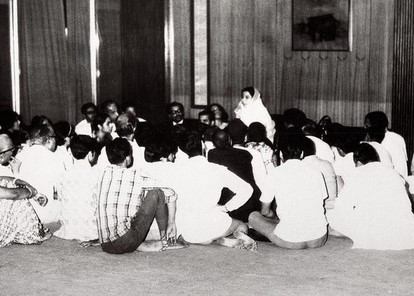
Shri Mataji Nirmala Devi (1923-2011) was Christian by birth, Hindu by marriage, and Paraclete by duty.
Total number of recorded talks 3058: Public Programs 1178, Pujas 651, and other (private conversations) 1249
“The Paraclete will come (15:26; 16:7, 8, 13) as Jesus has come into the world (5:43; 16:28; 18:37)... The Paraclete will take the things of Christ (the things that are mine, ek tou emou) and declare them (16:14-15). Bishop Fison describes the humility of the Spirit, 'The true Holy Spirit of God does not advertise Herself: She effaces Herself and advertises Jesus.' ...
It is by the outgoing activity of the Spirit that the divine life communicates itself in and to the creation. The Spirit is God-in-relations. The Paraclete is the divine self-expression which will be and abide with you, and be in you (14:16-17). The Spirit's work is described in terms of utterance: teach you, didasko (14:26), remind you, hypomimnesko (14:26), testify, martyro (15:26), prove wrong, elencho (16:8), guide into truth, hodego (16:13), speak, laleo (16:13, twice), declare, anangello (16:13, 14, 15). The johannine terms describe verbal actions which intend a response in others who will receive (lambano), see (theoreo), or know (ginosko) the Spirit. Such speech-terms link the Spirit with the divine Word. The Spirit's initiatives imply God's personal engagement with humanity. The Spirit comes to be with others; the teaching Spirit implies a community of learners; forgetful persons need a prompter to remind them; one testifies expecting heed to be paid; one speaks and declares in order to be heard. The articulate Spirit is the correlative of the listening, Spirit-informed community.
The final Paraclete passage closes with a threefold repetition of the verb she will declare (anangello), 16:13-15. The Spirit will declare the things that are to come (v.13), and she will declare what is Christ's (vv. 14, 15). The things of Christ are a message that must be heralded...
The intention of the Spirit of truth is the restoration of an alienated, deceived humanity... The teaching role of the Paraclete tends to be remembered as a major emphasis of the Farewell Discourses, yet only 14:26 says She will teach you all things. (Teaching is, however, implied when 16:13-15 says that the Spirit will guide you into all truth, and will speak and declare.) Franz Mussner remarks that the word used in 14:26, didaskein, "means literally 'teach, instruct,' but in John it nearly always means to reveal.” (Stevick 2011, 292-7)
The Holy Spirit as feminine: Early Christian testimonies and their interpretation,
Johannes van Oort, Radboud University, Nijmegen, The Netherlands
Department of Church History and Church Polity, Faculty of Theology, University of Pretoria, South Africa
Total number of recorded talks 3058: Public Programs 1178, Pujas 651, and other (private conversations) 1249
“The Paraclete will come (15:26; 16:7, 8, 13) as Jesus has come into the world (5:43; 16:28; 18:37)... The Paraclete will take the things of Christ (the things that are mine, ek tou emou) and declare them (16:14-15). Bishop Fison describes the humility of the Spirit, 'The true Holy Spirit of God does not advertise Herself: She effaces Herself and advertises Jesus.' ...
It is by the outgoing activity of the Spirit that the divine life communicates itself in and to the creation. The Spirit is God-in-relations. The Paraclete is the divine self-expression which will be and abide with you, and be in you (14:16-17). The Spirit's work is described in terms of utterance: teach you, didasko (14:26), remind you, hypomimnesko (14:26), testify, martyro (15:26), prove wrong, elencho (16:8), guide into truth, hodego (16:13), speak, laleo (16:13, twice), declare, anangello (16:13, 14, 15). The johannine terms describe verbal actions which intend a response in others who will receive (lambano), see (theoreo), or know (ginosko) the Spirit. Such speech-terms link the Spirit with the divine Word. The Spirit's initiatives imply God's personal engagement with humanity. The Spirit comes to be with others; the teaching Spirit implies a community of learners; forgetful persons need a prompter to remind them; one testifies expecting heed to be paid; one speaks and declares in order to be heard. The articulate Spirit is the correlative of the listening, Spirit-informed community.
The final Paraclete passage closes with a threefold repetition of the verb she will declare (anangello), 16:13-15. The Spirit will declare the things that are to come (v.13), and she will declare what is Christ's (vv. 14, 15). The things of Christ are a message that must be heralded...
The intention of the Spirit of truth is the restoration of an alienated, deceived humanity... The teaching role of the Paraclete tends to be remembered as a major emphasis of the Farewell Discourses, yet only 14:26 says She will teach you all things. (Teaching is, however, implied when 16:13-15 says that the Spirit will guide you into all truth, and will speak and declare.) Franz Mussner remarks that the word used in 14:26, didaskein, "means literally 'teach, instruct,' but in John it nearly always means to reveal.” (Stevick 2011, 292-7)
The Holy Spirit as feminine: Early Christian testimonies and their interpretation,
Johannes van Oort, Radboud University, Nijmegen, The Netherlands
Department of Church History and Church Polity, Faculty of Theology, University of Pretoria, South Africa
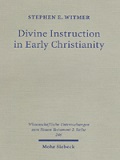
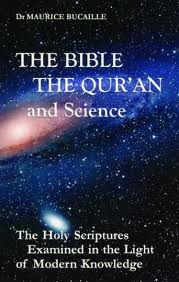
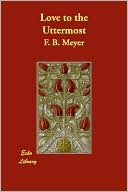
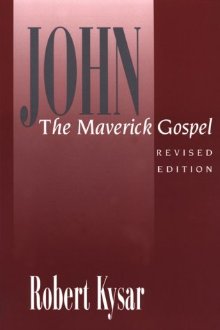
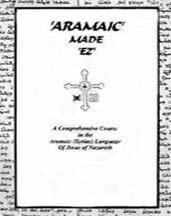

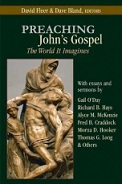
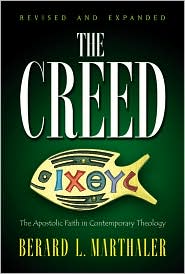
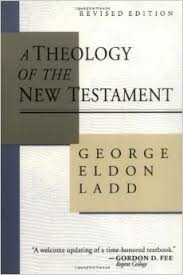
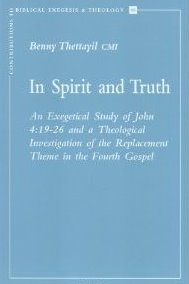

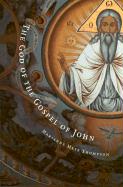
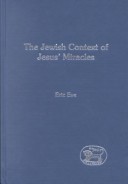
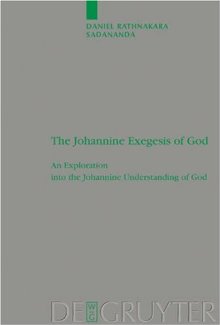

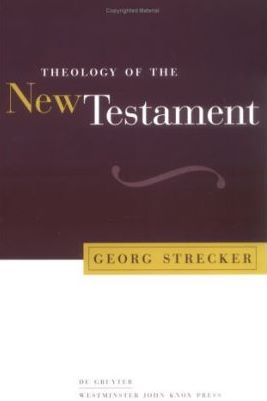

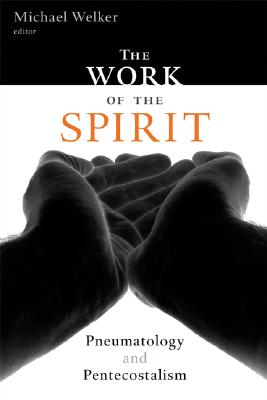
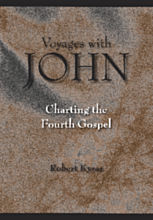
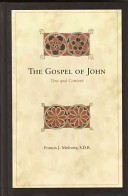

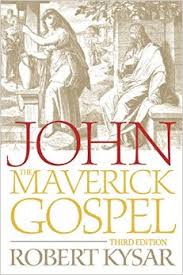
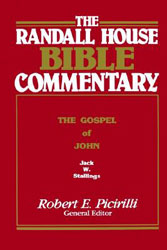
 “The teaching of the Paraclete, as the continuation of Jesus' teaching, must also be understood as the fulfillment of the promise of eschatological divine instruction.”
“The teaching of the Paraclete, as the continuation of Jesus' teaching, must also be understood as the fulfillment of the promise of eschatological divine instruction.”Stephen E. Witmer, Divine instruction in Early Christianity
“Jesus therefore predicts that God will later send a human being to Earth to take up the role defined by John .i.e. to be a prophet who hears God's words and repeats his message to man.”
M. Bucaille, The Bible, the Qur'n, and Science
“And when Jesus foreannounced another Comforter, He must have intended a Person as distinct and helpful as He had been.”
F. B. Meyer, Love to the Utmost
“The Paraclete has a twofold function: to communicate Christ to believers and, to put the world on trial.”
Robert Kysar, John The Meverick Gospel
“But She—the Spirit, the Paraclete...—will teach you everything.”
Danny Mahar, Aramaic Made EZ)
“Grammatical nonsense but evidence of the theological desire to defeminize the Divine.”
Lucy Reid, She Changes Everything
“The functions of the Paraclete spelled out in verses 13-15... are all acts of open and bold speaking in the highest degree.”
David Fleer, Preaching John's Gospel
“The reaction of the world to the Paraclete will be much the same as the world's reaction was to Jesus.”
Berard L. Marthaler, The Creed: The Apostolic Faith in Contemporary Theology
Bultmann calls the “coming of the Redeemer an 'eschatological event,' 'the turning-point of the ages.”
G. Ladd, A Theology of the New Testament
“The Paraclete equated with the Holy Spirit, is the only mediator of the word of the exalted Christ.”
Benny Thettayil, In Spirit and Truth
“The divine Paraclete, and no lessor agency, must show the world how wrong it was about him who was in the right.”
Daniel B. Stevick , Jesus and His Own: A Commentary on John 13-17
Stephen Smalley asserts that “The Spirit-Paraclete ... in John's Gospel is understood as personal, indeed, as a person.”
Marianne Thompson, The God of the Gospel of John
“The Messiah will come and the great age of salvation will dawn (for the pious).”
Eric Eve, The Jewish context of Jesus' Miracles
“The remembrance is to relive and re-enact the Christ event, to bring about new eschatological decision in time and space.”
Daniel Rathnakara Sadananda, The Johannine Exegesis of God
“The Spirit acts in such an international situation as the revealer of 'judgment' on the powers that rule the world.”
Michael Welker, God the Spirit
The Paraclete's “Appearance means that sin, righteousness, and judgment will be revealed.”
Georg Strecker, Theology of the New Testament
“While the Spirit-Paraclete is the true broker, the brokers they rely on are impostors.”
T. G. Brown, Spirit in the writings of John
“The pneumatological activity ... of the Paraclete ... may most helpfully be considered in terms of the salvific working of the hidden Spirit.”
Michael Welker, The work of the Spirit
“The pneuma is the peculiar power by which the word becomes the words of eternal life.”
Robert Kysar, Voyages with John
“The gift of peace, therefore, is intimately associated with the gift of the Spirit-Paraclete.”
Francis J. Moloney, The Gospel of John
“This utopian hope, even when modestly expressed, links Jesus and the prophets to a much wider history of human longing.”
Harvey Cox, The Future of Faith
“Because of the presence of the Paraclete in the life of the believer, the blessings of the end-times—the eschaton—are already present.”
Robert Kysar, John
“They are going, by the Holy Spirit's power, to be part of the greatest miracle of all, bringing men to salvation.”
R. Picirilli, The Randall House Bible Commentary
“The Kingdom of God stands as a comprehensive term for all that the messianic salvation included... is something to be sought here and now (Mt. 6:33) and to be received as children receive a gift (Mk. 10:15 = Lk. 18:16-17).”
G. Ladd, A Theology of the New Testament
Disclaimer: Our material may be copied, printed and distributed by referring to this site. This site also contains copyrighted material the use of which has not always been specifically authorized by the copyright owner. We are making such material available to our readers under the education and research provisions of "fair use" in an effort to advance freedom of inquiry for a better understanding of religious, spiritual and inter-faith issues. The material on this site is distributed without profit. If you wish to use copyrighted material for purposes other than “fair use” you must request permission from the copyright owner.